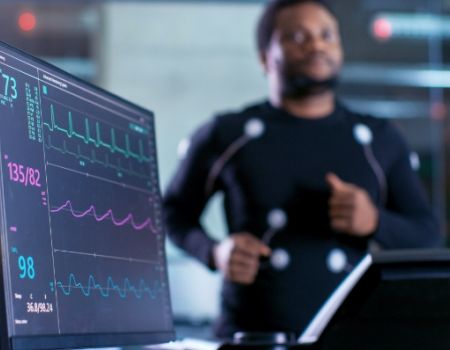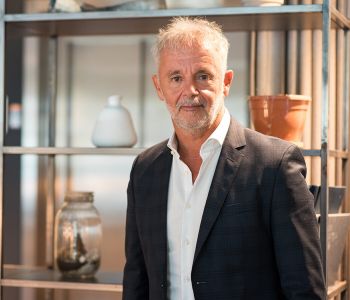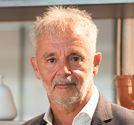Postgraduate
Become a therapist in Clinical Psychoneuroimmunology
A clinical science developed by Dr.Leo Pruimboom and more than 100 of his teachers. Designed for medical and paramedical practitioners with only one big purpose; to specialist-level therapists in Clinical Psychoneuroimmnulogy.

Consist of
12 modules
Dutch
German
Turkish
English
Modern life puts a huge burden on human health, and this affects almost every single person. It is full of so-called Anthropocene risk factors that are entirely new for our immune system and cause multiple diseases, which can affect individuals for more than 40 years of their lifetime. Sitting time, environmental pollution and even artificial light are risk factors that cause possible disease in all of us. Furthermore, in these times humans are also always doing something; this is something entirely new, causing burnout in probably 40% of the world population by 2040. We can’t continue like this, and that is why you need to become a therapist in Clinical Psychoneuroimmunology. The science, or perhaps even philosophy, which aims not only at the recovery of health but also the increase of stress tolerance by using both existing effective whole-body interventions, as well as developing new ones. Today you cannot treat everyone with biomedical interventions. Humans suffer from maladies caused by toxic emotions, toxic thoughts, sleep disturbances and even unknown dangers. All those factors produce a low-grade inflammation that precedes most, if not all, chronic diseases, including the susceptibility to possibly pandemic viral infections. Low-grade inflammation is treatable, and so are all the diseases as its consequence.
If you are a medical or paramedical practitioner of the 21st century, you need to be ‘integrative’. So don’t miss out on this opportunity to learn clinical psychoneuroimmunology, and become a Clinical Psychoneuroimmunologist.
You will receive the most up-to-date training in the field of clinical psychoneuroimmunology
You will be empowered to offer truly comprehensive care to your patients and clients, addressing not just the symptoms, but also the underlying causes of pathologies
You will have access to our full library of resources, a team of dedicated professionals, and the combined expertise of our growing community

Leo Pruimboom – Director of the Pruimboom Institute
The course is divided into six modules per year, each covering a different topic in cPNI.
Pruimboom Institute is privileged to have a team composed of members representing the foremost experts in the field of cPNI clinical psychoneuroimmunology.

|
Dr. Leo Pruimboom
|
Dr. Leo Pruimboom is the director of the Pruimboom Institute and Foundation.
He is the founder of KPNI, clinical psychoneuroimmunology, which he has been developing for over 3 decades. He is an internationally recognised researcher and lecturer and has spoken at over 200 congresses worldwide. Furthermore, he is also responsible for developing the Intermittent Living concept, written 6 books and chapters, and published over 35 research papers.
|

|
Itziar Hernandez
|
Itziar Hernandez holds a master’s degree in Clinical Psychoneuroimmunology and in currently doing a master in Personalized Nutrition. She is a lecturer and scientific director at PNI Europe where she takes part in the development of academic content. Previously, she was the CEO of her own practice and has worked as a clinical therapist for over 15 years.
|

|
Professor Charles Raison, M.D.
|
Prof. Raison is an internationally recognized psychiatrist. He has several academic positions at reputable universities and over 100 (co)-publications to his name. He also serves as the mental health expert for CNN.com.
|

|
Tom Fox
|
Tom Fox is movement scientist, naturopath and therapist in clinical psychoneuroimmunology. He is CEO of KPNI Germany, and also leads his own practice. He has (co)authored scientific publications and lectured on a range of topics related to KPNI.
|

|
Professor Dr. Frits Muskiet
|
Prof. dr. Frits Muskiet is professor emeritus of pathophysiology and clinical chemical analysis. He has been (co)advisor of 32 PhD students and has (co)authored more than 280 PubMed registered publications.
|
Admission to the course requires a complete medical or paramedical education. In addition, persons with a complete education in basic medical knowledge at higher professional education level or in basic medical subjects, plus training in orthomolecular therapy, are admitted. Individuals who are athletes, who have undergone recognized personal trainer training or who have completed osteopathic training may also enroll.
Accredited by PNI Europe.
The course is two years long, plus an optional third year. Individuals who pass the theoretical exam at the end of the first year, and the practical exam at the end of the second year are entitled to use the title of “therapist in KPNI”.
The third year entitles you to the title of “Master in cPNI” of the University of Salamanca (Universidad Pontificia de Salamanca) upon successful completion (see exam procedure).
The master’s year exam consists of a 50-question multiple-choice exam + two portfolio papers during the training year.
This master’s degree is organized by the University in collaboration with PNI Europe and is valid worldwide.
For more information, see the Master’s degree.
Two academic years, 12 modules. Each of the academic courses consists of 6 three-day seminars and Q & A sessions.
60 ECTS
Approximately 45 students per class, but the amount may vary depending on the campus.
Online, live virtual and in-person.
All teaching materials are offered in digital format. In each module, students will receive:
- A digital reference text supporting the topics covered in that module
- Digital didactic material
- Scientific articles
During the course you will have access to the private section of your campus website, where you can download all presentations, articles and supporting chapters. There is also a student auditorium (digital library) and an interactive forum.During the course you will have access to the private section of the PNI Europe website, where you can download all presentations, articles and supporting chapters. There is also a student auditorium (digital library) and an interactive forum.
It is not mandatory to participate in the exams. If the student has taken at least 80% of all classes, he/she will receive a certificate of participation. If you wish to take the exam, you can register via a registration form. The exam is subject to PNI Europe guidelines, which can be found on the PNI Europe website. To take the exam, the student must have completed 80% of all modules. The costs of the exams are indicated on the website.
The exams consist of both written and practical parts. Once the exams are passed, the title “Therapist in Clinical Psychoneuroimmunology” can be used.
Failure to pass the Year 1 and Year 2 exams has no consequences, and the student can apply to retake the exam at a later time. If you fail one of these exams, you can still continue with the course. To be eligible for the master’s year, the student must pass all exams. You can also start the master’s degree if you have requested to retake one of the exams.
Pruimboom Institute and its scientific committee are responsible for the development of the master’s programme; the members of the committee are continuously working on the program to include the latest discoveries and every three months there is a committee meeting to update the course content. The committee is made up of Prof. Dr. Marion Raab, Prof. Dr. Frits Muskiet, Tom Fox, Daniel de la Serna, Itziar Hernández, and Dr. Leo Pruimboom.
The master’s is taught by Pruimboom institute teachers and/or by teachers from Pruimboom Institute partners at the different campuses. The University of Salamanca is in charge of granting the diplomas that certify the title of Master in Clinical Psychoneuroimmunology.
We kindly refer you to the campus of your interest for prices and registration options.
See general terms and conditions